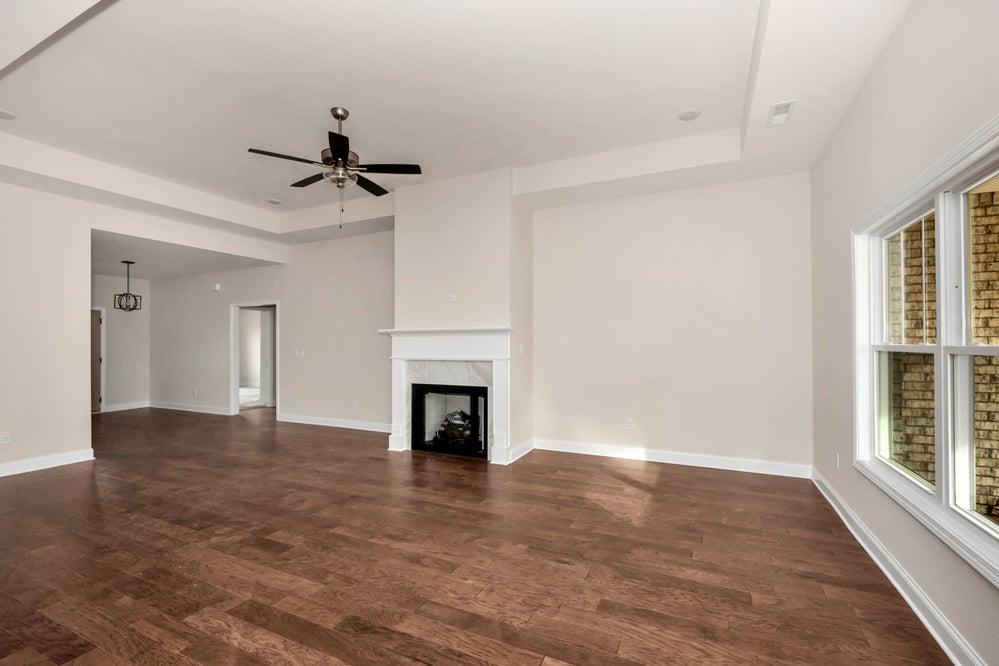Creating Generational Wealth
"Real estate cannot be lost or stolen, nor can it be carried away, Purchased with common sense, paid for in full, and managed with reasonable care, it is about the safest investment in the world." - Franklin D. Roosevelt
Here at Red Door Homes, we love building homes for many reasons. Of course, there is the obvious reason that we can provide for ourselves and our families but it does not take long to realize that most people work here for something more. Something that provides a sense of fulfillment beyond getting a pay check at the end of the week. For many of us, that sense of fulfillment comes from the knowledge that we are helping people create Generational Wealth through housing.
Housing stands as more than just shelter; it can serve as a powerful vehicle for building and transferring generational wealth. Across cultures and societies, homeownership has been regarded as a significant milestone, representing stability, security, and a tangible asset that can appreciate over time. In this blog post, we'll delve into the various ways in which housing can be utilized to create and sustain wealth for future generations.
Equity Accumulation: One of the primary mechanisms through which housing contributes to generational wealth is through equity accumulation. As homeowners pay down their mortgage, they build equity in their property. Additionally, property values tend to appreciate over time, further increasing the equity homeowners hold. This accumulated equity can serve as a financial resource for future generations, whether through refinancing, selling the property, or passing it down as an inheritance. 
- Investment Opportunities: Real estate investment presents myriad opportunities for wealth creation. Beyond primary residences, purchasing additional properties for rental income or flipping for profit can significantly boost wealth accumulation. Income generated from rental properties can provide a steady stream of passive income, while strategic property investments can yield substantial returns over time. Moreover, real estate investments offer tax advantages and portfolio diversification, further enhancing their appeal as a tool for building generational wealth.
- Inheritance and Legacy: Homeownership allows individuals to pass down assets to their heirs, thereby establishing a foundation for future financial security. Inherited properties not only provide beneficiaries with a place to live but also offer potential financial gains if managed wisely. By inheriting real estate, descendants can leverage these assets to bolster their own financial standing or continue to grow the family's wealth through prudent management and strategic decision-making.
- Homeownership as a Pathway to Education and Economic Mobility: Studies have shown a correlation between homeownership and improved educational outcomes and economic mobility. Children growing up in stable, homeownership environments tend to perform better in school and have greater access to resources that foster academic and professional success. Furthermore, homeownership can serve as a source of collateral for financing higher education or starting a business, providing opportunities for upward socioeconomic mobility within families.
- Community Development and Social Capital: Beyond its financial implications, homeownership fosters community development and social capital, which can indirectly contribute to generational wealth. Homeowners are more likely to be invested in their communities, contributing to local economies and civic engagement. Strong community ties can yield valuable social networks and opportunities for collaboration and mutual support, ultimately enhancing the overall well-being and resilience of future generations.
- Net Worth Disparity: According to the Federal Reserve's Survey of Consumer Finances, the median net worth of homeowners is significantly higher than that of renters. In 2019, the median net worth of homeowners was $255,000, while that of renters was only $6,300.
- Wealth Accumulation Over Time: Studies have shown that homeowners experience greater wealth accumulation over their lifetimes compared to renters. A report by the Joint Center for Housing Studies of Harvard University found that between 2013 and 2016, the median wealth of homeowners aged 65 and over was 80 times greater than that of renters in the same age group.
- Inter-Generational Wealth Transfer: Homeownership facilitates inter-generational wealth transfer. Data from the Federal Reserve's Survey of Consumer Finances indicates that inheritances, including real estate, are a significant source of wealth for many households. In 2019, the median inheritance received by homeowner families was $75,000, compared to $0 for renters.

By examining these statistics, it becomes evident that homeownership plays a pivotal role in wealth creation and accumulation. One of our core values at Red Door Homes is to leave others better than we found them. This goes for our team members, our vendors, and our customers. When we think about the economic impact that a new home can have on individuals and families, it is inspiring that we can be a small part of helping people establish Generational Wealth














